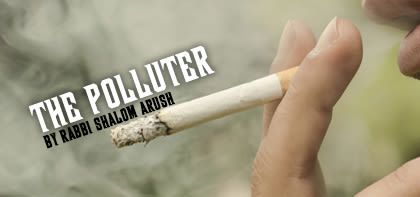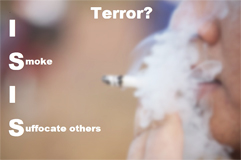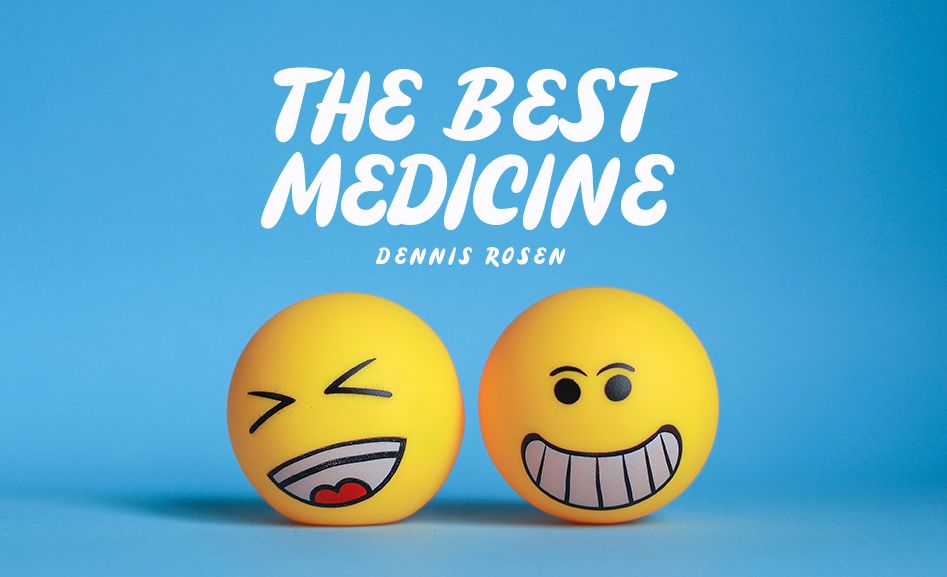
The Polluter
A person can forgive another for stealing his wealth, pride, but how can he forgive him for harming his physical health and shortening his days in this world?

A nonsmoker once related that during a series of medical tests, he underwent a chest X-ray. After examining the X-ray, the doctor asked him sternly, “How long have you been smoking?”
Bewildered, the man replied, “I don’t smoke. I’ve never smoked a cigarette in my life.”
The doctor pointed to the image of his lungs and said, “Your lungs are as black as a heavy smoker’s.” It turned out that the man worked in close quarters with several chain smokers whose dangerous habit inflicted severe damage on this innocent man’s lungs.
Incontrovertible medical statistics prove that, tragically, one quarter of deaths by lung cancer occur to nonsmokers who are affected by contact with heavy smokers in their environment. It thus emerges that people who smoke actually harm the people in their environment more than they harm themselves, as the vile smoke that emerges from their lungs is more destructive than the smoke that they inhale into their  own bodies.
own bodies.
Thus, even if a smoker may argue that he doesn’t care about himself — not his health, money, time, or even his life, and he presents a myriad of excuses for his folly, how can he ignore the damage that he inflicts upon others?
A person can forgive someone for anything except his health and his life! He can forgive another for stealing his wealth, pride, and glory, but how can he forgive him for harming his physical health and shortening his days in this world? When a smoker stands before the Heavenly Court and is shown the number of people whom he harmed and murdered through his noxious habit, what will he answer? Is there any thought more daunting that that?
Even if a smoker doesn’t actually injure other people’s health, he is still reducing their enjoyment and pleasure in the world by clouding and polluting the fresh air. One who walks in the street or sits at a bus stop smoking a cigarette, directly harms those in his immediate environment, as the vast majority of people are repelled by the stench of cigarette smoke, some suffering nausea or headaches as a result of it. Should these people be forced to suffer because of the selfishness of one person?
The most vulnerable victims of all are children. Parents who smoke destroy their children’s health, and even worse, frequently their children mimic their behavior and adopt the habit at a young age. A smoker may say, “I don’t care about myself,” but can he say the same about his children? Is there any smoker who really wants his children to smoke as well? Even the heaviest smoker hopes that his children won’t adopt his deleterious habit, yet the sad truth is that the apple doesn’t fall far from the tree, and chances are that his children will follow in his footsteps, as this is the natural course of the world. An expectant woman who smokes during pregnancy inflicts severe harm upon her child, who often suffers permanent damage.
The Torah commands, “And you shall vigorously guard your souls.” Since the perils of smoking have become known, the vast majority of contemporary rabbinical authorities have accepted the universality of the clear halachic ruling prohibiting smoking. Any commandment in the Torah that includes the words “guard,” “lest,” or “do not” is regarded as a prohibition, and smoking — which is a hazard to the health — is thus included in the prohibition of “vigorously guarding your souls.” Thus, one who smokes blatantly transgresses this commandment.
Already more than a century ago, the Chafetz Chaim mentioned in his works Likutei Amarim and Zechor L’Miriam that smoking is prohibited, as it’s injurious both to the body and soul and is a direct cause of neglecting Torah learning, wasting time, losing money, unnecessary speech, and gossip. Incredibly, the Chafetz Chaim wrote this 60 years before science and medical professionals discovered the deleterious effects of smoking.
The ruling of the Chafetz Chaim, which is followed by the recent contemporary prohibition against smoking, is based on the following halacha in the Shulchan Aruch, Choshen Mishpat 127:10.
“One who transgresses these things [dangerous things], etc., and says, ‘I am endangering only myself, and what concern is it to others?’ Or he may say, ‘I do not care about this,’ is deserving of lashes. And one who is careful with this, upon him will come the blessing of good.”
The Be’er Hagolah explains:
“In my humble opinion, the reason the Torah cautions about safeguarding the body is because the Holy One Blessed Be He created the world in His loving-kindness to bestow goodness to His creations, so they would recognize His Greatness and serve Him by fulfilling His commandments and his Torah, as it is written, “All those who are called in my name, for My honor I created him…” and to grant them good reward for their toil. One who jeopardizes oneself scorns the Will of his Creator and rejects His service and reward, and there is no greater act of scorn or wantonness than this.…”
Thus, even one who dismisses the holy words of Rebbe Nachman, who forbade smoking as an impediment to living the Chassidic lifestyle, cannot rationalize transgressing an actual prohibition in the Torah! As I’ve said, the vast majority of contemporary halachic authorities rule that smoking is included in the prohibition of “You shall vigorously guard your souls,” and one who smokes transgresses this commandment. There is even one prominent rabbinic authority who wrote that a person about whom it can be established that he died as a result of smoking may not be buried in a Jewish cemetery, as he is considered like one who has committed suicide. Is there any Jew who doesn’t tremble hearing these words?











Tell us what you think!
Thank you for your comment!
It will be published after approval by the Editor.